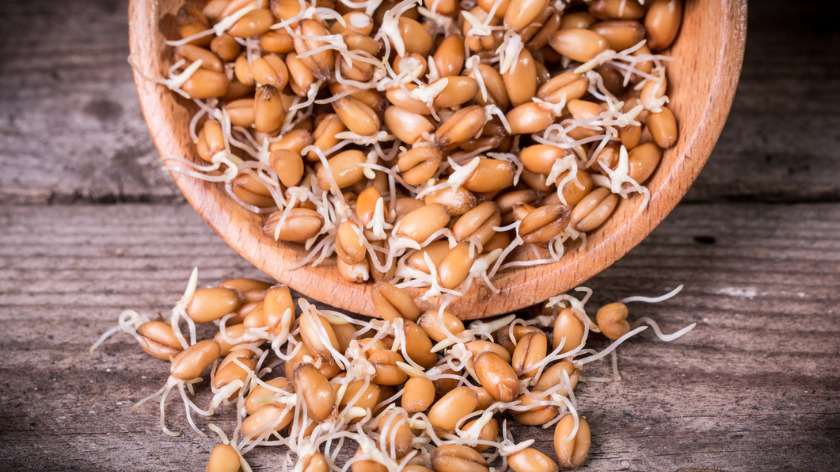The message to choose whole grains has been received loud and clear. Most of us know that seeing “100% whole wheat” or “whole grain” on a food label means it’s a more nutrient-dense, healthy choice compared to its refined or white flour counterpart. Choosing whole grain products is a great step toward including more fiber in your diet and increasing your intake of phytochemicals. To take it a step further, tap into intact, unprocessed grains like quinoa, farro and barley, and consider exploring sprouted grains. Check out the health benefits of these germinated grains!
Nutrient Bioavailability
Sprouted grains are the seeds of grains that have been allowed to germinate, or sprout, before cooking, mashing or grinding them into flour. Research shows this process may increase nutrient availability, especially of folate, iron, vitamin C, zinc and magnesium. This means that the body can absorb a higher percentage of nutrients in this form.
Reduced Phytate
Another benefit: The process of sprouting grains breaks down phytate, a form of phytic acid, which can reduce the absorption of certain vitamins and minerals in the body. There’s no need to fear phytic acid, as research shows this “anti-nutrient” may be protective of DNA and fight cancer cell growth. Still, the fact that sprouted grains are lower in phytate will allow nutrients in that meal to be better absorbed, and who doesn’t love getting more bang for their buck?
More Plant Protein
Sprouted grains can also be advantageous compared to conventional grains due to their higher protein content, especially for those eating a more plant-based diet. Rotating sprouted grains into a meal plan with nuts, seeds, beans and other legumes can ensure the diet is well-rounded and has adequate protein. A serving of sprouted grain bread can have as much as 30% more protein!
Digestibility
People that have difficulty digesting whole grains may find sprouted grains easier to break down. The transformation of starch to simple sugar and the degradation of the grain’s storage proteins essentially “pre-digest” parts of the grain. While this doesn’t eliminate gluten or make gluten-containing grains safe for those with celiac disease or a gluten allergy, it can make whole grains more tolerable for those with non-celiac gluten sensitivities.
To include sprouted grains in the diet, you can start by exploring sprouted grain bread, or Ezekial bread. Be sure to check the label, making sure the product is made with 100% whole grain. You may find Ezekial bread and other sprouted loaves in the frozen section of your local or specialty grocery store. You can also find sprouted grain flour, crackers, pasta, and cereal or read up on sprouted grain tips from the Oldways Whole Grains Council! If you’re looking to explore in the kitchen, try this Sprouted Brown Rice & Zucchini Risotto.







